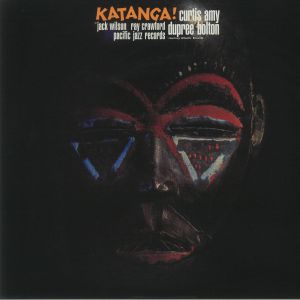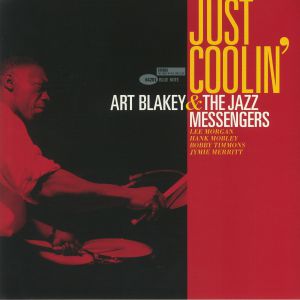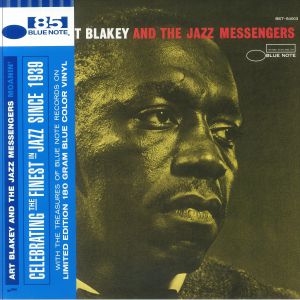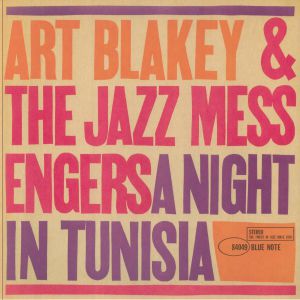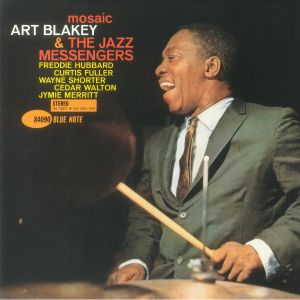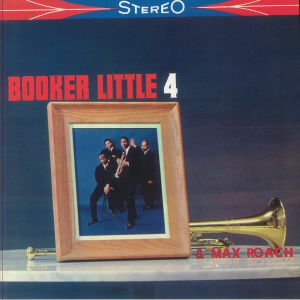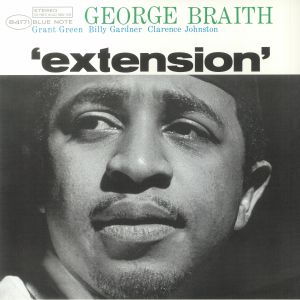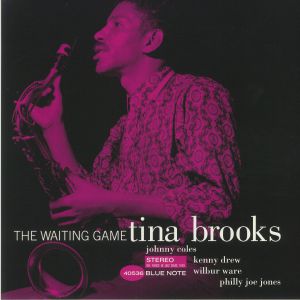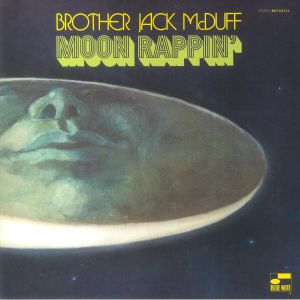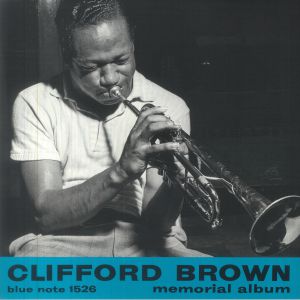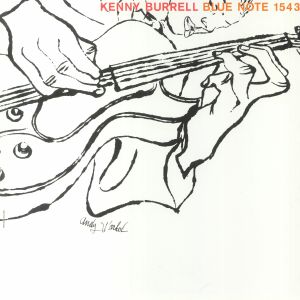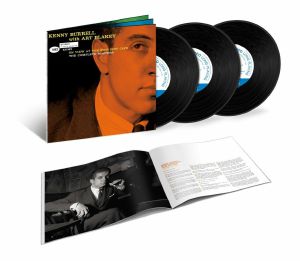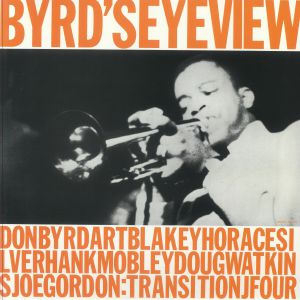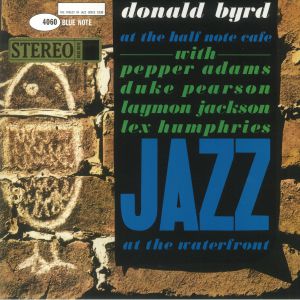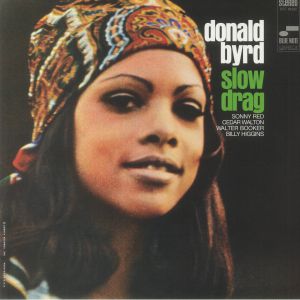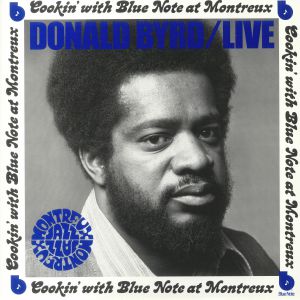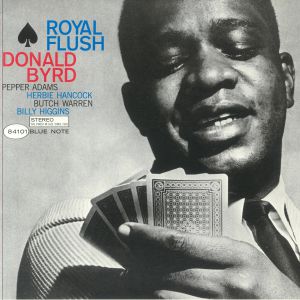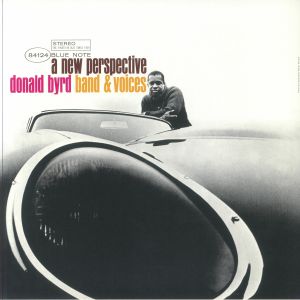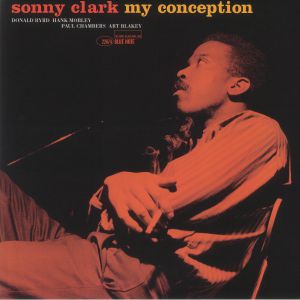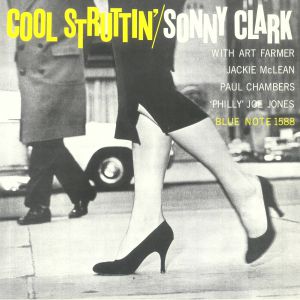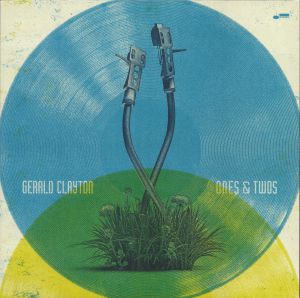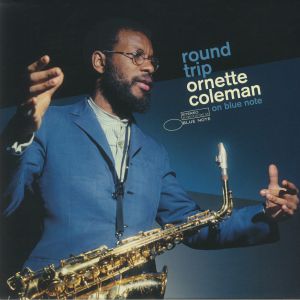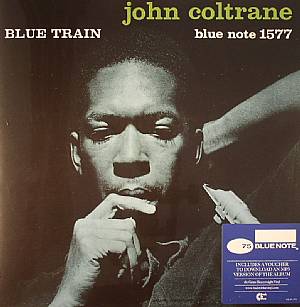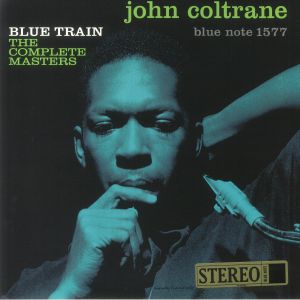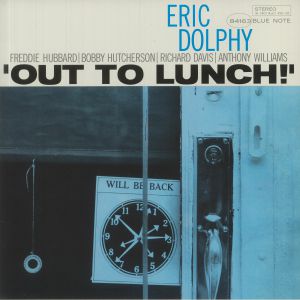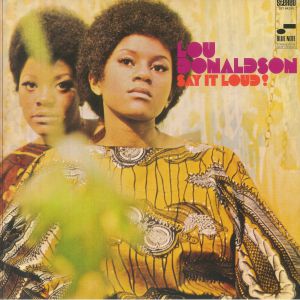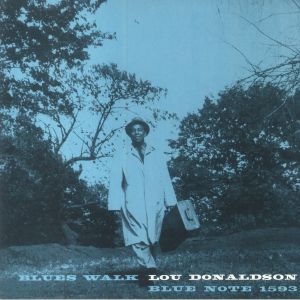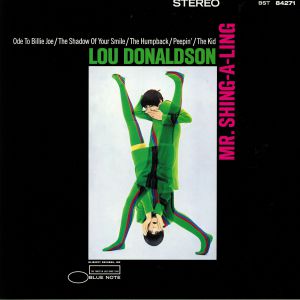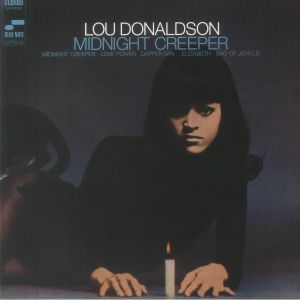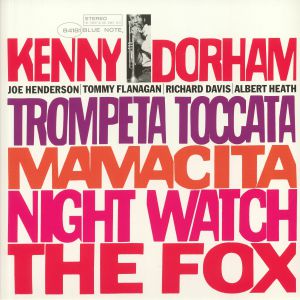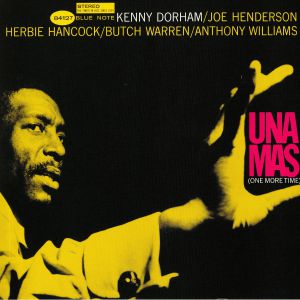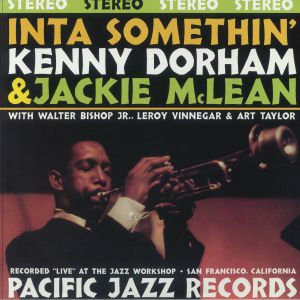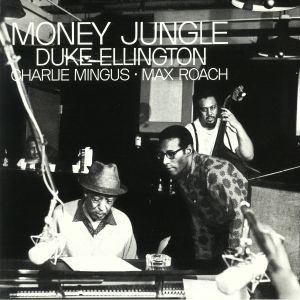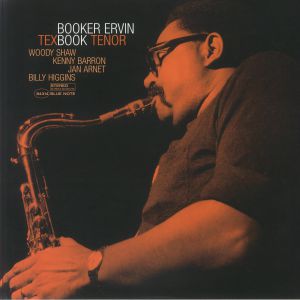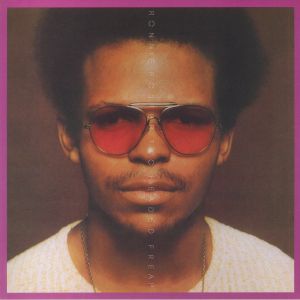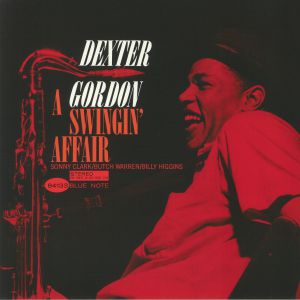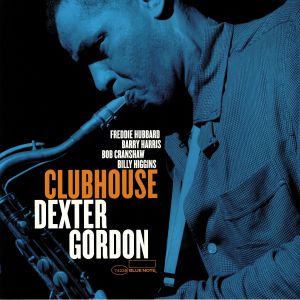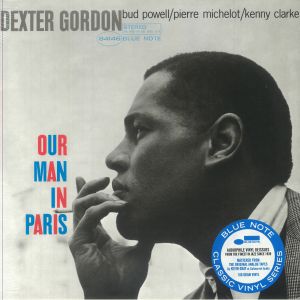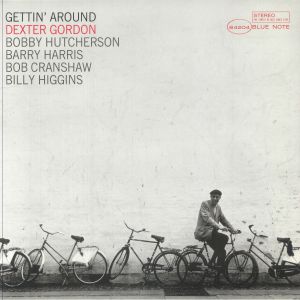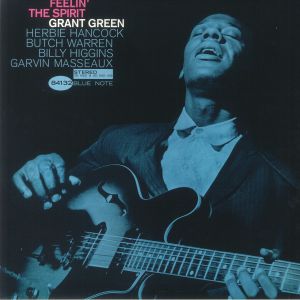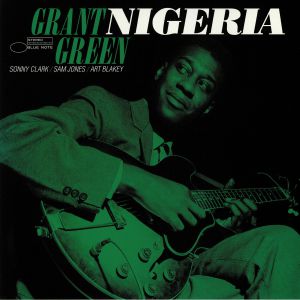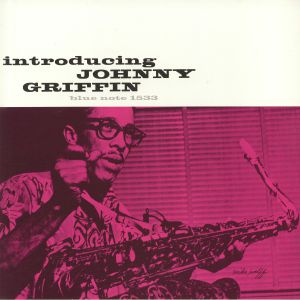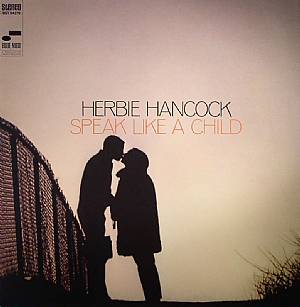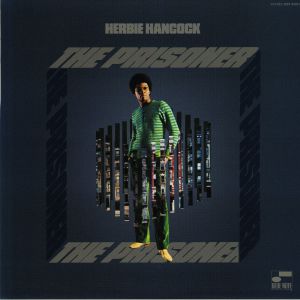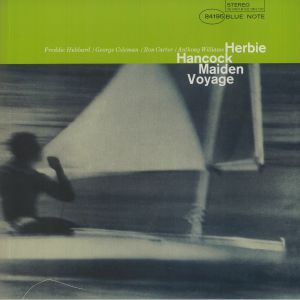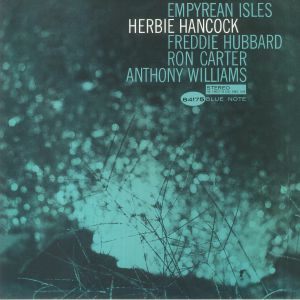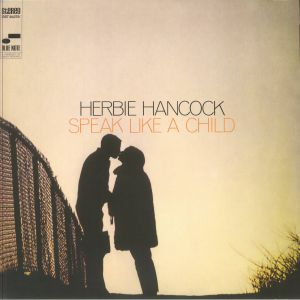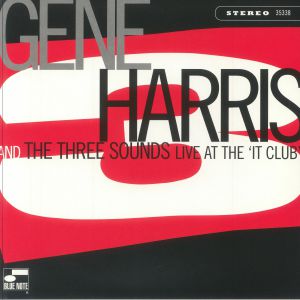Filter
Stock
Type
Music
Format
Label
Release Title
Price
Back catalogue: Jazz
Juno's full catalogue of Jazz
Albums
Katanga! (Tone Poet Series) (reissue) (180 gram audiophile vinyl LP)
Cat: 351492 4. Rel: 04 Jun 21
Played by: Juno Recommends Jazz
in stock $44.90
Just Coolin' (heavyweight vinyl LP)
Cat: 508650 23. Rel: 17 Jul 20
Review: Jazz fans are in for a real treat here as Blue Note unleash a never before heard studio album by Art Blakey & The Jazz Messengers. It was recorded back in 1959 at the legendary Rudy Van Gelder's Hackensack studio and has Lee Morgan, tenor saxophonist Hank Mobley, pianist Bobby Timmons, and bassist Jymie Merritt all playing as part of the recording. As the title suggests, it's a breezy, super cool record with seductive trumpets and icy drums all next to neat keys that encourage you to gently bop. After months of waiting, it proves more than worth all the anticipation.
… Read morePlayed by: Juno Recommends Jazz
in stock $24.94
Moanin' (limited 180 gram blue vinyl LP with obi-strip (indie exclusive))
Cat: 585922 8. Rel: 08 Aug 24
Review: Art Blakey & The Jazz Messengers' Moanin' is a quintessential hard bop album that effortlessly stands out with its classic, distinctive sound. Released in 1958, this seminal record features a lineup of jazz luminaries, including pianist Bobby Timmons, saxophonist Benny Golson, trumpeter Lee Morgan, and bassist Jymie Merritt. Despite its adherence to traditional hard bop elements, the album shines with an exceptional blend of precision, enthusiasm, and depth. The title track, 'Moanin',' composed by Timmons, sets the tone with its infectious groove, while Golson's contributionsi'Along Came Betty,' 'Blues March,' and 'Are You Real?'iadd a range of emotions and rhythms, from lyrical to powerful. The standout 'The Drum Thunder Suite' shows Blakey's unparalleled drumming strength, combining dynamic rhythms and Latin influences. The album's meticulous craftsmanship ensures that every track maintains the listener's attention, offering a mix of accessible melodies and intricate musicianship. Blakey's leadership and the band's chemistry result in an album that is not only a highlight of hard bop but also a compelling entry point for jazz enthusiasts. Moanin' remains a timeless classic, celebrated for its masterful execution and enduring impact on the jazz genre.
… Read morePlayed by: Juno Recommends Jazz
in stock $41.29
A Night In Tunisia (Classic Vinyl Series) (180 gram vinyl LP)
Cat: 650076 4. Rel: 17 Oct 24
A Night In Tunisia
Sincerely Diana
So Tired
Yama
Kozo's Waltz
Review: One of the finest line-ups of Art Blakey & The Jazz Messengers came together when saxophonist Wayne Shorter joined trumpeter Lee Morgan, pianist Bobby Timmons and bassist Jymie Merritt, as featured on this now newly reissued 1960 album A Night In Tunisia. The album kicks off with a blazing rendition of Dizzy Gillespie's iconic piece - which lends its name to the LP - while the rest of the set highlights original compositions from the new band members. This Blue Note Classic Vinyl Edition is a stereo, all-analogue release mastered by Kevin Gray from the original master tapes, so sounds superb.
… Read morePlayed by: Juno Recommends Jazz
in stock $31.87
Mosaic (reissue) (180 gram audiophile vinyl LP)
Cat: 552425 3. Rel: 19 Oct 23
Review: Blue Note reissue the drummer Art Blakey and his Jazz Messengers' time-honoured hard bop album Mosaic, often cited as among his best. From the titular opener to the seguing montage-worthy sequences of 'Arabia', 'Crisis' or 'Down Under', we're met with huge, extruding saxes and trombones, backed by Blakey's un-pin-downable drumming, evocative of huge towering New York skylines and crowd bustle; apparently, the album was so tightly performed it needed no alternate takes.
… Read morePlayed by: Juno Recommends Jazz
in stock $29.11
Booker Little 4 & Max Roach (Tone Poet Series) (180 gram audiophile vinyl LP)
Cat: 488194 8. Rel: 03 Oct 24
Review: The reissue of Booker Little 4 & Max Roach as part of the Tone Poet Vinyl Series is an exciting announcement for jazz fans. Booker Little, a brilliant trumpeter whose life was tragically cut short at 23, left an indelible mark on the jazz world. This 1958 album, recorded when Little was just 20, showcases his extraordinary talent both as a musician and composer. The LP features the dynamic interplay between Little and Max Roach, one of jazz's most influential drummers, along with George Coleman on tenor sax, Tommy Flanagan on piano and Art Davis on bass. It opens with a spirited rendition of Miles Davis' 'Milestones', setting the tone for the session, before the standards 'Sweet and Lovely' and 'Moonlight Becomes You' are given fresh interpretations. But the heart of the album lies in Little's original compositions: 'Rounder's Mood,' 'Dungeon Waltz,' and 'Jewel's Tempo.' These tracks highlight his inventive melodic sense and technical strength. The Tone Poet Series ensures an audiophile-quality experience, with meticulous mastering by Kevin Gray and a deluxe presentation that lives up to the highest standards.
… Read morePlayed by: Juno Recommends Jazz
in stock $39.35
Review: Extension was the last of three unique Blue Note sessions led by the singular saxophonist George Braith in the early 1960s. The album was rooted in soul jazz - with Grant Green (guitar), Billy Gardner (organ), and Clarence Johnston (drums) - but Braith's adventurous spirit led the music into unexpected realms on memorable originals like "Nut City." Blue Note Classic Vinyl Series is all-analogue, mastered by Kevin Gray from the original master tapes, and pressed on 180-gram vinyl at Optimal.
… Read morePlayed by: Juno Recommends Jazz
in stock $12.48
The Waiting Game (Tone Poet Series) (reissue) (gatefold 180 gram audiophile vinyl LP)
Cat: 893419. Rel: 29 Jan 21
Review: Tina Brooks' final album was one of his most underrated. The tenor saxophonist really brought the goodness on The Waiting Game, which she record din 1961 but did not put out until 1999. The undervalued player might have played a big part in the hard bop era but only one of his Blue Note sessions ever made it out. Here he is joined by Johnny Coles on trumpet, Kenny Drew on piano, Wilbur Ware on bass, and Philly Joe Jones on drums, and wrote five of the six tunes himself. It's a soulful sound with highlights like modal masterpieces 'Dhyana' and 'David the King.'
… Read morePlayed by: Juno Recommends Jazz
in stock $44.90
Moon Rappin' (reissue) (limited gatefold 180 gram audiophile vinyl LP)
Cat: 453520 5. Rel: 27 May 22
Review: Brother Jack McDuff's Moon Rappin is one of those records which sets off a thousand sample-spots. The prolific jazz man made an incredibly catchy kind of jazz funk on this record, with the title track making for something of a peak of the genre in its cool and deadly groove. It's got soul for days and plenty of compositional chops to keep you locked in for the duration. Equally, if you're looking for hot breaks, they're smattered all over this record thanks to Joe Dukes holding it down on the skins and McDuff working his magic on the organ. A timeless classic, repressed by the good folk at Blue Note with their high quality standards present and correct.
… Read morePlayed by: Juno Recommends Jazz, DJ ROCCA
in stock $30.77
Review: The incomparable trumpeter Clifford Brown recorded two leader sessions for Blue Note in 1953 - a co-led quintet date with Lou Donaldson and his own sextet date - that were compiled on the 12" Memorial album, shortly after his tragic death in 1956. Brownie's star burns bright from the blistering 'Cherokee' to the stunning ballad 'Easy Living'. This Blue Note Classic Vinyl Edition is mono, all-analog, mastered by Kevin Gray from the original master tapes and pressed on 180g vinyl at Optimal.
… Read morePlayed by: Juno Recommends Jazz
in stock $31.04
Kenny Burrell (Tone Poet Series) (mono) (limited gatefold 180 gram audiophile vinyl LP)
Cat: B 003348601. Rel: 06 Oct 22
Review: The Tone Poet series from Blue Note continues apace with this reissue of Kenny Burrell's masterful self-titled album. As guitarists go, Burrell has a sound which dances with nimble eloquence few could even dream of matching. Hear him cavorting across 'Be Happy' and it's quite hard to imagine the notes were played by human hands. Despite that, it's also a wonderfully delicate, rounded sound which more than makes it worthy of an entry into this series - just marvel at that tone, captured across a variety of spots in New York in the spring of '56.
… Read morePlayed by: Juno Recommends Jazz
in stock $33.24
Kenny BURRELL with ART BLAKEY
On View At The Five Spot Cafe: The Complete Masters (Tone Poet Series) (gatefold 3xLP + booklet)
Cat: 750228 1. Rel: 24 Apr 25
Played by: Juno Recommends Jazz
in stock $80.92
Places & Spaces (reissue) (180 gram audiophile vinyl LP)
Cat: 359680 0. Rel: 19 Nov 21
Review: Blue Note are on a reissuing roll, not shying from revisiting the work of their most treasured jazz acts this year. The latest in their Classic Editions comes by way of Donald Byrd, whose timeless 1975 album Places And Spaces documents the trumpeter's fearless jazz-funk fusion era. This being Blue Note, you can expect only the best rendition of this orchestral jazz-funk suite that a vinyl pressing has to offer. This version is an all-analog remaster, by legendary cutting engineer Kevin Gray, from the original tapes. Expect a thorough justice-doing of the hits, 'Dominoes' and 'Wind Parade', which boast production credits from the infamous Larry Mizell.
… Read more in stock $30.49
Byrd's Eye View (Tone Poet Series) (180 gram vinyl LP + insert)
Cat: 458522 5. Rel: 02 May 24
Review: The great and hugely prolific Donald Byrd dropped many seminal albums both solo and with his Byrds and 'Byrd's Eye View', arriving now on Blue Note's Tone Poet Series which is renowned for its audiophile-grade vinyl reissues, is one of them that makes for a captivating jazz journey. With Byrd's virtuosity and innovation shining throughout, the album showcases his signature blend of hard bop and soulful melodies. It features six cuts and comes with a nice booklet that provides a wreath of context and background information to soak up while you sink into the sounds.
… Read morePlayed by: Juno Recommends Jazz
in stock $42.96
At The Half Note Cafe Volume 1 (Blue Note Tone Poet Series) (gatefold 180 gram audiophile vinyl LP)
Cat: 381458 6. Rel: 02 Feb 23
Review: Donald Byrd is one of our favourite trumpeters to adorn the Blue Note hall of fame; once more, the eminent label bursts open our doors with a fresh LP documenting an obscure live appearance. This time chronicling his appearance in November 1960 in New York venue Half Note, it hears Byrd feature alongside Pepper Adams, Duke Pearson, Laymon Jackson and Lex Humphries. With inclusions of such Byrd standards and favourites as 'My Shy Girl', 'Cecile' and 'Soulful Kiddy', this is as uptempo yet bluesy a live album as you can possibly get.
… Read morePlayed by: Juno Recommends Jazz
in stock $39.08
Slow Drag (reissue) (gatefold 180 gram audiophile vinyl LP + insert)
Cat: BLUNB 0034364011. Rel: 01 Jun 23
Review: Donald Byrd's 1967 Slow Drag album came after the jazz legend had already recorded more than dozen albums for the seminal Blue Note label. He was joined for it by the drumming of Billy Higgins, alto saxophonist Sonny Red, pianist Cedar Walton, and bassist Walter Booker who all bring their own original compositions to the album. It's a pure hard bop session that marked the end of this chapter of Byrd's sound before he moved into fusion territory. Plenty of edgy groove-fess, ad-libbed vocals and boss flavours feature on what is one of many Byrd essentials.
… Read more in stock $34.64
Review: This is a very special release indeed, for fans of Donald Byrd's 70s period and Blue Note devotees of all types. There was a heavy presence from the Blue Note roster at the 1973 Montreux Jazz Festival, and many of the performances were released under the Live Cookin With Blue Note at Montreux banner - Bobby Hutcherson, Bobbi Humphrey and Marlena Shaw being some notable mentions. But this set from Donald Byrd inexplicably sat on master tapes in relative obscurity for a long time and now, on what would have been Byrd's 90th birthday, this raw and urgent live performance gets a proper release. It's in the vein of his seminal Black Byrd LP, but there's a more direct attack from the band in their live form - take one listen and you'll see exactly what we mean.
… Read more in stock $24.66
Royal Flush (Classic Vinyl Series) (reissue) (180 gram audiophile vinyl LP)
Cat: 650076 5. Rel: 17 Oct 24
Review: Donald Byrd's Royal Flush, released in 1961 on Blue Note, exemplifies his mastery of hard bop, featuring a stellar lineup that includes a young Herbie Hancock on piano, Pepper Adams on baritone sax, Butch Warren on bass, and Billy Higgins on drums. This album marks Hancock's recording debut, showcasing his burgeoning talent as he steps into the shoes of Duke Pearson. The combination of Byrd's trumpet and Adams' baritone sax creates a unique, textured harmony that is both bold and refined. Tracks like 'Hush' and 'Shangri-La' highlight the band's cohesive interplay, with solos that are both distinct and beautifully integrated into the compositions. 'Requiem,' a standout piece penned by Hancock, offers a mid-tempo, gospel-tinged piano blues that allows Hancock to explore melodic space, supported by Byrd and Adams' plaintive lines and Warren's resonant bowed bass solo. What sets Royal Flush apart is Byrd's understated leadership, allowing each musician to shine while maintaining a unified sound. The result is an album rich in melody, brimming with the synergy of seasoned players and a young, innovative pianist on the rise.
… Read morePlayed by: Juno Recommends Jazz
in stock $31.87
A New Perspective (Classic Vinyl Series) (180 gram vinyl LP)
Cat: 583200 3. Rel: 14 Mar 24
Review: Jazz trumpet legend Donald Byrd has one of those seemingly endless discography that takes in solo and group albums and is full of treasure that is well worth exploring no matter your particularly stylistic penchant. 1963's A New Perspective is a landmark album that brings gospel and soul elements into his usual jazz sound. It features a stellar lineup including Herbie Hancock and Hank Mobley and the centerpiece is the iconic 'Cristo Redentor,' a soulful composition that showcases Byrd's lyrical trumpet playing. With its fusion of genres, the album broke new ground and paved the way for future jazz explorations that Pitchfork have said is one of the best albums of the 1960s. Byrd's innovative approach and the ensemble's tight chemistry make that so.
… Read morePlayed by: Craig Charles Funk And Soul
in stock $31.04
My Conception (Tone Poet Series) (gatefold 180 gram audiophile vinyl LP)
Cat: 352682 4. Rel: 27 Aug 21
Review: Sonny Clark was a truly elegant pianist who played with his own style of soul. On his My Conception full length he really reached the peak of his powers and for that reason it is the next in the on going Tone Poet reissue series by Blue Note. A big casts of sidemen feature on the record next to Clark including Hank Mobley on tenor saxophone, Donald Byrd on trumpet, Paul Chambers on bass and Art Blakey on drums. The record is packed with highlights such as the sombre trumpet of the title track and the fiery brilliance of 'Minor Meeting.'
… Read morePlayed by: Juno Recommends Jazz
in stock $40.75
Cool Struttin' (remastered) (180 gram audiophile vinyl LP)
Cat: 357917 8. Rel: 25 Jun 21
Review: Sonny Clark's Cool Struttin' album is a jazz classic. The artist himself shone bright for a brief but intense period of creativity, much like greats before him such as Charlie Parker and Fats Navarro. His intricate playing and hard swing mentality makes for music filled with nuance and detail but sadly he never got the recognition he deserved during his short life (he died aged 31). He put out seven records in all on Blue Note and played with the likes of John Coltrane and Donald Byrd. This memorable session was recorded by Rudy Van Gelder and features a quintet made up of altoist Jackie McLean, trumpeter Art Farmer, bassist Paul Chambers and drummer Philly Joe Jones.
… Read morePlayed by: Juno Recommends Jazz
in stock $23.00
Review: Dutch-born American jazz pianist and composer Gerald Clayton is back with a sixth album, his second on Blue Note. Ones & Twos is another exploration of jazz, hip-hop, neo-soul and raw improvisation that is all rooted in a deep conceptual framework. Featuring standout collaborators like Joel Ross, Elena Pinderhughes, Kendrick Scott and Kassa Overall, the album moves effortlessly from groove to abstraction and is inspired by turntablism, which is why Clayton created two sets of tracks that can play individually or simultaneously, blurring the line between harmony and dissonance. As rich as the sonics are, there is also real philosophical intent here, making it both a visceral and cerebral listen with layered commentary on collaboration, coexistence and creativity.
… Read morePlayed by: Juno Recommends Jazz
in stock $29.92
Round Trip: Ornette Coleman On Blue Note (limited 180 gram audiophile vinyl 6xLP box set)
Cat: 358653 1. Rel: 04 Feb 22
Announcement/Faces & Places (LP1: The Ornette Coleman Trio At The Golden Circle Sockholm Vol 1) (12:47)
Played by: Juno Recommends Jazz
in stock $299.30
Played by: Juno Recommends Jazz, DJ ROCCA
in stock $26.33
Blue Train: The Complete Masters (Tone Poet Series) (gatefold 180 gram audiophile vinyl 2xLP + booklet)
Cat: 454810 7. Rel: 16 Sep 22
Review: There are few jazz albums as universally adored and significant as Blue Train. That's no exaggerated remark - it's a record imprinted on 20th Century culture, albeit just one of Coltrane's many incredible works. As part of their continued Tone Poets series, Blue Note are revisiting this landmark and giving it a grand presentation under the banner of The Complete Masters. That means, as well as the official recordings that make up Blue Train, we're also treated to a second disc of additional takes which give you a whole new perspective on these eternal treasures, from a false start of 'Blue Train' to multiple takes on 'Moment's Notice' and 'Lazy Bird'.
… Read morePlayed by: Juno Recommends Jazz
in stock $65.96
Out To Lunch (reissue) (180 gram audiophile vinyl LP)
Cat: 358750 2. Rel: 24 Sep 21
Review: Jazz multi-instrumentalist Eric Dolphy's Out To Lunch is the latest in the on going Blue Note Reissue series, Tone Poet. It was his only recording for the seminal label and is often said to be one of the best they ever put out, as well as one of Dolphy's own personal highlights. Certainly fans of 1960s avant-garde jazz will agree. Dolphy was joined by trumpeter Freddie Hubbard and bassist Richard Davis amongst others, and told all players that there was no leader in the recording sessions that made up the album. That makes for a dense, busy and freeform record filled with wild playing and super musical ideas.
… Read morePlayed by: Juno Recommends Jazz
in stock $26.33
Say It Loud (Classic Vinyl) (gatefold 180 gram vinyl LP)
Cat: 651497 0. Rel: 20 Mar 25
Review: Lou Donaldson's Say It Loud! is a classic of the late 60s soul-jazz movement, combining infectious grooves with a lineup of skilled musicians. Released in 1969 on Blue Note, this album highlights California-based Donaldson's expertise on the alto saxophone, blending hard-swinging bebop roots with a funkier, dance-driven approach. The title track, inspired by James Brown's anthem, is a cool, laid-back rendition that shows his nuanced playing alongside the solid rhythms of trumpeter Blue Mitchell, guitarist Jimmy Ponder, organist Charles Earland, and drummer Leo Morris. The album shines with its extended tracks like 'Snake Bone' and 'Brother Soul', where the soloists stretch out, creating moments of tension and release. Ponder's blues-infused guitar solos and Earland's dramatic organ builds are standouts. While the bossa nova rendition of 'Summertime' and the swinging 'Caravan' bring a more traditional jazz feel, the album is most vibrant when it grooves hard. Despite being somewhat overshadowed by Donaldson's earlier work, Say It Loud! remains a highly enjoyable and essential part of his legacy. It may not carry the same weight as Midnight Creeper, but its infectious rhythms and tasteful solos ensure its place as a classic in soul-jazz, deserving of a greater appreciation which this reissue celebrates.
… Read morePlayed by: Craig Charles Funk And Soul
in stock $29.92
Blues Walk (Classic Vinyl Series) (remastered) (180 gram audiophile vinyl LP)
Cat: 453520 8. Rel: 17 Jun 22
Review: Blue Note Records continue to top up their Classic Vinyl reissues series, this time homing in on Lou Donaldson's sixth album for the label 'Blues Walk' (he never swayed from Blue Note). The legendary jazz saxophonist and bandleader intended the LP to be his magnum opus at the time, and as history slowly ingested its influence, it became as such. Six rain-drizzled original pieces span two sides, with Donaldson joined by Herman Foster, Peck Morrison, Dave Bailey and Ray Barretto for an unusual jazz combo involving congas, and a unique mood that epitomised his own brand of cool jazz-blues.
… Read morePlayed by: Juno Recommends Jazz
in stock $28.27
Mr Shing A Ling (Tone Poet Series) (remastered) (180 gram vinyl LP)
Cat: 773885 1. Rel: 21 Jun 19
Played by: Juno Recommends Jazz
in stock $51.83
Midnight Creeper (Tone Poet Series) (gatefold 180 gram vinyl LP)
Cat: 452622 5. Rel: 18 Jan 24
Review: The Tone Poet series, from esteemed jazz emigres Blue Note Records, is produced by our favourite Tone Poet Joe Harley and features definitive all-analogue 180g audiophile vinyl reissues mastered from the original master tapes by Kevin Gray of Cohearent Audio. The firstmost, early bird in the Tone Poet series is none other than Lou Donaldson's Midnight Creeper; the third in a series of stellar soul jazz outings by the saxophonist, made for Blue Note in the late-1960s, with key players including Hammond B3 virtuoso Lonnie Smith, young guitar star George Benson, funky drummer Idris Muhammad and the bluesy trumpeter Blue Mitchell.
… Read morePlayed by: Juno Recommends Jazz
in stock $42.96
Played by: Juno Recommends Jazz
in stock $31.04
Played by: DJ ROCCA
in stock $23.00
Inta Somethin' (Tone Poet Series) (LP + insert)
Cat: 483218 5. Rel: 06 Jun 24
Review: Kenny Dorham and Jackie McLean's Inta Somethin' is a vibrant snapshot of their performance at San Francisco's Jazz Workshop in late 1961. Jackie Mac's prowess shines brightly as he delivers a compelling rendition of 'Una Mas' a year prior to its Blue Note release. Backed by Leroy Vinnegar, Walter Bishop and Art Taylor, the ensemble crafts a dynamic and exhilarating atmosphere as McLean's virtuosity is on full display, captivating listeners with his electrifying playing style. Inta Somethin' is proof of the skills of these jazz giants and is a great window into their live repertoire and sense of musical innovation.
… Read morePlayed by: Juno Recommends Jazz
in stock $40.47
Money Jungle (Tone Poet Series) (reissue) (gatefold 180 gram audiophile vinyl)
Cat: 847069. Rel: 24 Apr 20
Played by: Juno Recommends Jazz
in stock $44.90
Tex Book Tenor (Tone Poet Series) (180 gram vinyl LP)
Cat: 458522 4. Rel: 29 Feb 24
Review: Blue Note's Tone Poet series is one of the most prolific and driven reissuing motors out there, focusing on faithful, audiophile-quality restorations, remasters and re-presses. Next on their list is Brooker Ervin's sax masterpiece Tex Book Tenor (1968). Contrasting to the revolutionary unease of its year of release, Tex Book Tenor abides by the book, bringing together five steady performances, including two covers (of Kenny Barron 'Gichi' and Woody Shaw's 'In A Capricornian Way'), and three originals, 'Den Tex', 'Lynn's Tune' and '204'. The album is soft-spoken in sound here - contrasting to his reputation for tough playing elsewhere - but this variety only proves Ervin's status as one of the fullest vessels around.
… Read morePlayed by: Juno Recommends Jazz
in stock $42.96
Two Headed Freap (Classic Vinyl Series) (remastered) (limited 180 gram audiophile vinyl LP)
Cat: 453520 3. Rel: 27 May 22
Review: The vast and ongoing Blue Note reissue series continues apace her with organist Ronnie Foster's Two Headed Freep album. Foster was a master collaborator who worked with everyone from George Benson to the Jacksons to Stevie Wonder (an in fact played the keys on Songs In The Key Of Life.) But it was his work on Grant Green's funky live LP Alive! in 1970 that caught the attention of the Blue Note boss who tapped him up for this label debut two years later. It is a vibrant seton tunes with five originals as well as covers of the likes of Al Green. Kevin Gray has mastered it from the original tapes and it has been pressed on 180g vinyl at Optimal.
… Read more in stock $36.30
Review: Two days after he laid down his most celebrated album, "Go!", saxophonist Dexter Gordon gathered together the same line-up of musicians - Sonny Clark on piano, Butch Warren on bass and Billy Higgins on drums - and recorded a follow-up. Initially released in 1962, "A Swingin' Affair" has long been considered a hard-bop classic - hence this fresh reissue from Blue Note. It certainly contains some of Gordon's best work, not least the sparkling opener "Soy Califa", the languid and smoky niceness of "You Stepped Out Of A Dream" and the bluesy, bittersweet brilliance of slow-motion classic "Until The Real Thing Comes Along".
… Read morePlayed by: Juno Recommends Jazz
in stock $22.16
Clubhouse (Tone Poet Series) (reissue) (gatefold 180 gram audiophile vinyl LP)
Cat: 771877 6. Rel: 28 Jun 19
Played by: Juno Recommends Jazz
in stock $29.75
Our Man In Paris (Classic Vinyl Series) (180 gram audiophile vinyl LP)
Cat: 651496 7. Rel: 20 Feb 25
Review: Super cool jazz cat Dexter Gordon's 1963 album Our Man in Paris marked his first release from Europe and is often regarded as the final bebop album. The saxophonist gathered a quartet featuring bebop legends Bud Powell on piano and Kenny Clarke on drums and they played alongside French bassist Pierre Michelot to record this timeless work at CBS Studios in Paris. The album is defined by Gordon's commanding saxophone with the intricate rhythms of bebop that take you right back to a precise moment of musical history which marked a significant transition in jazz. It remained a defining work in Gordon's career.
… Read morePlayed by: Juno Recommends Jazz
in stock $31.04
Gettin' Around (Classic Vinyl Series) (180 gram audiophile vinyl LP)
Cat: 651036 8. Rel: 14 Nov 24
Review: Dexter Gordon's 1965 album Gettin' Around captures the essence of his refined, effortless saxophone playing, coming at a time when he was back in the States after a long stint in Europe. The vibe here is smooth and unhurried, with Gordon's tenor sax at the centre of it all, surrounded by a standout crew: vibraphonist Bobby Hutcherson, pianist Barry Harris, bassist Bob Cranshaw, and drummer Billy Higgins. This unique instrumentation really shines, especially with the interplay between Gordon and Hutcherson on tracks like 'Manha De Carnival' and 'Shiny Stockings.' The whole session feels relaxed yet precise, with Gordon letting his sax sing while the band provides subtle yet nuanced backing. Highlights include the gentle swing of 'Everybody's Somebody's Fool' and the more upbeat 'Le Coiffeur,' both showcasing the group's tight but easy-going chemistry. Reissued as part of the Blue Note Classic Vinyl Series, this edition stays true to its analogue roots, mastered by Kevin Gray from the original tapes and pressed on heavyweight 180g vinyl. For fans of Gordon or classic Blue Note, it's a must-have.
… Read morePlayed by: Juno Recommends Jazz
in stock $31.87
Feelin' The Spirit (Tone Poet Series) (remastered) (limited gatefold 180 gram audiophile vinyl LP)
Cat: B 003348801. Rel: 06 Oct 22
Review: Blue Note's Tone Poets series is all about celebrating some of the greatest jazz guitarists, reissuing their seminal albums as a nod to virtuoso talent. Grant Green's 1963 album Feelin' The Spirit consisted of jazz arrangements of traditional African American spirituals such as 'Nobody Knows The Trouble I've Seen' and 'Sometimes I Feel Like A Motherless Child'. Given the historical weight of the music, it's no surprise to hear Green soaring high as he expresses the songs through his guitar, but as if that wasn't enough he's backed up by Herbie Hancock on piano, Butch Warren on bass and Billy Higgins on drums.
… Read morePlayed by: Charlie bucket/ dancing in space
in stock $42.41
Nigeria (Tone Poet Series) (reissue) (gatefold 180 gram vinyl LP)
Cat: 835890. Rel: 28 Feb 20
Played by: Juno Recommends Jazz
in stock $37.42
Introducing Johnny Griffin (reissue) (heavyweight vinyl LP)
Cat: 774506 4. Rel: 14 Jun 19
Played by: Juno Recommends Jazz
in stock $30.21
My Point Of View (Tone Poet Series) (reissue) (gatefold 180 gram audiophile vinyl LP)
Cat: 881133. Rel: 30 Oct 20
Played by: Juno Recommends Jazz
in stock $44.90
in stock $32.14
The Prisoner (Tone Poet Series) (reissue) (180 gram vinyl LP)
Cat: 847068. Rel: 17 Apr 20
Played by: Juno Recommends Jazz
in stock $33.24
Maiden Voyage (Classic Vinyl Series) (limited 180 gram audiophile vinyl LP)
Cat: 359319 6. Rel: 24 Sep 21
Review: Blue Note's Classic Vinyl series is about reissuing vital jazz records on heavyweight vinyl with all new mastering by Kevin Gray of Coherant Audio. Next to get the special treatment it deserves is Herbie Hancock's 1965 classic Maiden Voyage, which is some of the most evocative jazz to have ever been recorded. Net to Hancock, the players were all either present or past members of Miles Davis' quintet, so made for a heavy line-up. Hancock's impressionistic style is here for all to hear with the sublime compositions of 'Dolphin's Dance' and 'Maiden Voyage' and more tumultuous sounds of 'The Eye Of The Hurricane' some of the highlights.
… Read morePlayed by: Juno Recommends Jazz, DJ ROCCA
in stock $26.33
Empyrean Isles (Classic Vinyl Series) (remastered) (180 gram audiophile vinyl LP)
Cat: 485956 2. Rel: 16 Mar 23
Review: Blue Note's Classic Vinyl Series turns its focus to the one and only Herbie Hancock here for another superb reissue that will keep the jazz heads happy. His long player Empyrean Isles landed in 1964 as his fourth overall. For this one Hancock linked up with his Miles Davis bandmates including Ron Carter on bass and Tony Williams on drums with Freddie Hubbard also on board with his trusty trumpet. The record works through hard bop and modal as well as plenty of soulful jazz sounds and is another standout in Hancock's discography.
… Read morePlayed by: Juno Recommends Jazz
in stock $28.27
Speak Like A Child (Classic Vinyl Series) (gatefold 180 gram audiophile vinyl LP)
Cat: 583203 2. Rel: 18 Apr 24
Review: Speak Like A Child by Herbie Hancock is a groundbreaking album that defies categorization, blending elements of post-bop, modal jazz, and funk into a cohesive and forward-thinking sound only to be slotted into a wide spanning genre like Jazz-Fusion. The title track, 'Speak Like A Child', is a standout composition that highlights Hancock's signature piano playing, characterized by its lyrical melodies and inventive harmonies. The album features intricate arrangements and complex rhythms, with each track offering a unique sonic journey for the listener. Hancock's ability to push the boundaries of traditional jazz while maintaining a deep respect for the genre's roots is clear throughout the album. 'Speak Like A Child' remains a landmark recording in Hancock's discography, cementing his status as one of the most influential figures in modern jazz.
… Read morePlayed by: Juno Recommends Jazz
in stock $29.37
Live At The It Club (reissue) (180 gram audiophile vinyl LP)
Cat: 588079 0. Rel: 19 Sep 24
Review: The Three Sounds, one of Blue Note's most productive acts, evolved significantly by 1970. Under the leadership of pianist Gene Harris, the trio welcomed bassist Henry Franklin and drummer Carl Burnett into its ranks, infusing their blues and gospel foundations with a funkier, more vibrant rhythm. This shift is brilliantly captured in Live at the 'It Club', a rousing live recording that highlights their transformation. The record demonstrates how the trio, especially through Burnett's drumming and Franklin's basslines, pushed their sound into funkier territories while maintaining their soulful hard-bop roots. The rhythm section's infectious groove drives the music, giving it a loose, swinging feel where the groove is paramount. Tracks like 'Funky Pullett' and 'Love for Sale' showcase this new dynamic, where the interplay between the trio adds layers of grit and soul to their performances. Live at the 'It Club' remains a thoroughly enjoyable listen with the trio's unique blend of soul-jazz with a fresh, funky twist proudly presented.
… Read morePlayed by: Juno Recommends Jazz
in stock $30.21

 USD
USD






